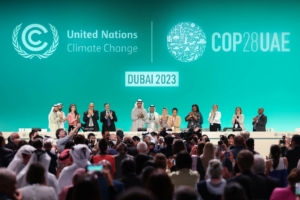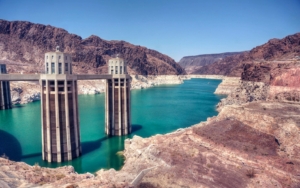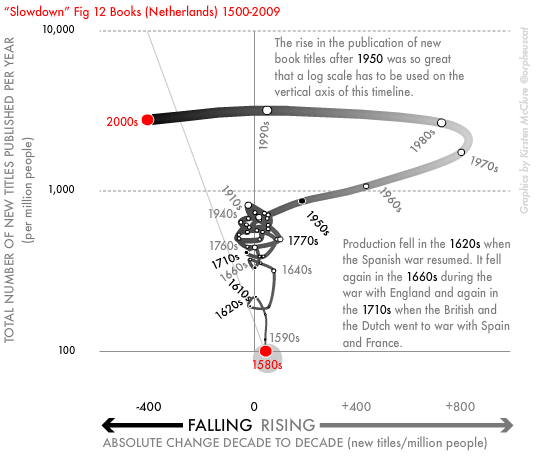governance
A New Zealand Minister’s ‘war’ with the media
He described state-funded journalism as ‘bribery’
Originally published on Global Voices
Minister Winston Peters being interviewed by the media. Screenshot from the YouTube video of Newshub
New Zealand’s Deputy Prime Minister and Minister of Foreign Affairs Winston Peters said he is at “war” with the media and has accused public broadcasters of lacking independence.
Peters, currently serving as Deputy PM under Prime Minister Christopher Luxon, is the founder and leader of the populist and nationalist New Zealand First party. He began his tenure by publicly chided the media just days after the country’s new government was formed on November 27, 2023. He questioned, in particular, the USD 55 million public interest journalism fund set up by the previous government during the COVID-19 pandemic in 2020, which he claimed was used to “bribe” the media.
He asked journalists to stop being “mathematical morons,” and, at one point during a Cabinet meeting, he dared journalists to be “transparent”:
Before you go, can you possibly tell the public what you had to sign up to to get the money? Before you ask one more question, tell the public what you signed up to to get the money.
Peters is a veteran politician whose party lost in the 2020 election. During the October 2023 campaign period, he lambasted some journalists for being “corrupt” and “dirt merchants.” He repeated his charge about the media being biased during a parliamentary session during the first week of December.
Three conservative parties, including Peters’ New Zealand First party, formed a coalition to form a government. The new government has pledged to lower taxes, reduce bureaucracy, train more police, and ease inflation. They dislodged the former ruling Labour Party, which was globally praised for its handling of the COVID-19 pandemic but faced local criticism for the rising cost of living.
In his rebuke of the public interest journalism fund, Peters didn't mention that it aimed to support local media companies that lost advertising revenue during the pandemic. The fund was managed by New Zealand on Air, an independent body. Andrew Shaw, a board member of the body, described Peters’ statement as “malicious” and “not truthful.” He subsequently resigned from his position since his statement undermined the impartiality of the body.
Sir Ian Taylor, founder and managing director of Animation Research and also a former board member of New Zealand on Air, wrote that Peters should apologize for his remarks. He also defended the credibility and independence of the body.
The only way journalists could access those funds was to have their applications approved by the New Zealand on Air board, a completely independent organisation. By making the claim that “you can’t defend USD 55 million of bribery” our Deputy Prime Minister just accused the full board of being complicit in his bribery claim and they, quite justifiably, should expect an apology for such an unwarranted, and potentially defamatory, claim. He certainly deserved much more than the slap over the wrist he got.
Tracy Watkins, editor of the Sunday Star-Times, wrote that Peters is engaging in “misdirection and misinformation” and that he is using his office “to further erode trust and respect in the media.” She also criticized the motives of authorities who echo the baseless claims of Peters about the media:
Why have so many powerful people bought into this argument? Because it muddies the boundary between truth and lies. Because a weakened media is good for them. What politician wouldn’t want that? They don’t particularly like being answerable to the media and they like even less the scrutiny that comes with public office.
Cédric Alviani, the Asia-Pacific bureau director of Reporters Without Borders, urged New Zealand’s Prime Minister Christopher Luxon to affirm the government’s support for a free press. He also condemned the statements of Peters:
By making irresponsible comments about journalists in a context of growing mistrust of the New Zealand public towards the media, Deputy Prime Minister Peters is sending out a worrying signal about the newly-appointed government’s attitude towards the press.
The Abuse of Power: Confronting Injustice in Public Life – review
In The Abuse of Power: Confronting Injustice in Public Life, Theresa May examines several “abuses of power” by politicians and civil servants involved in policy, and advocates for a shift from careerism to public service is needed to achieve better governance. In Chris Featherstone‘s view, May’s selective case studies and weak defence of her role in controversial events like the Windrush scandal will do little either to forge a new model of British politics or rehabilitate her reputation.
The Abuse of Power: Confronting Injustice in Public Life. Theresa May. Headline. 2023.
 This is not your typical political memoir. The reader is assured of this by a glance at the dust jacket before even opening The Abuse of Power. In recent tradition, books by former Prime Ministers typically take the form of an attempt to correct the narrative of their time behind the famous black door (David Cameron’s For the Record), or to explain their route to the top job in UK politics (Tony Blair’s A Journey). Taking an alternative tack, Theresa May scrutinises a range of cases of what she calls “abuses of power” by politicians and civil servants involved in policy, analysing the reasons behind them. Yet, despite this ostensibly different approach, The Abuse of Power reveals itself as an attempt to rehabilitate May’s reputation after her acrimonious exit from Downing Street in 2019.
This is not your typical political memoir. The reader is assured of this by a glance at the dust jacket before even opening The Abuse of Power. In recent tradition, books by former Prime Ministers typically take the form of an attempt to correct the narrative of their time behind the famous black door (David Cameron’s For the Record), or to explain their route to the top job in UK politics (Tony Blair’s A Journey). Taking an alternative tack, Theresa May scrutinises a range of cases of what she calls “abuses of power” by politicians and civil servants involved in policy, analysing the reasons behind them. Yet, despite this ostensibly different approach, The Abuse of Power reveals itself as an attempt to rehabilitate May’s reputation after her acrimonious exit from Downing Street in 2019.
The Abuse of Power reveals itself as an attempt to rehabilitate May’s reputation after her acrimonious exit from Downing Street in 2019.
The book examines examples of “injustice in public life”, highlighting the flaws in how government has approached and dealt with these issues. Examining cases ranging from the Salisbury Poisonings and the Hillsborough disaster to Brexit and the US withdrawal from Afghanistan, May highlights two factors. Firstly, she argues that it is the natural disposition of many in the public sector to place protecting the public sector ahead of the interests of those they serve. Secondly, she observes the growth of careerism and popularity-seeking amongst politicians, and the prioritisation of this over “the job they are there to do”.
May argues for the necessity of a deep attitudinal change in those in public life, especially from civil servants and politicians.
May’s proposed solution to these pervasive flaws in British public life is “service”, a theme that runs throughout her account of her own political career. As such, May argues for the necessity of a deep attitudinal change in those in public life, especially from civil servants and politicians. Her calls for greater diversity in those recruited to the civil service and a wider selection of candidates to stand in elections are well-intentioned, but unsupported with recommendations for how this can be achieved.
At first glance, her proposal that working for the broad public good could prevent many of the scandals she analyses appears somewhat convincing.
At first glance, her proposal that working for the broad public good could prevent many of the scandals she analyses appears somewhat convincing. The analysis used to form this argument is engaging, especially in those cases where May has personal knowledge, such as the Grenfell Tower tragedy (when external cladding on a tower-block caught fire, killing 72 people) or bullying and sexual harassment in Westminster. Yet, this reveals an underlying theme that accompanies the focus on “service”: May’s attention to governance rather than politics.
This partiality is reflected in May’s scepticism of politicians’ relationship with the media. In a chapter on social media, May characterises politicians’ use of social media as a superficial means of humanising them by showing the coffee cup they use or their typical breakfast. Despite raising important concerns on regulating the use of social media (whilst in Downing Street May initiated a government review of social media regulation, attacking the “vile” messages sent to female MPs), her simplistic and patronising framing of the use of social media in communication between politicians and the electorate is out of touch, and detracts from her argument.
May’s focus on effectively serving the public is coupled with a disregard for the politics of government, the importance of persuading people why policies are effective.
May’s media scepticism continues in her view of what characteristics are desirable in leaders. She condemns both short-term headline-seeking and the media focus that means if a leader does not speak to the media they are “written off.” These reactions against contemporary media and political communication methods are almost quaint, demonstrating wishful thinking for a bygone era of politics. May’s focus on effectively serving the public is coupled with a disregard for the politics of government, the importance of persuading people why policies are effective.
The Brexit chapter in particular highlights this inattention to the importance of persuading people – politicians and voters alike – of her approach. May accuses some MPs, including former Speaker John Bercow, of abusing their power by voting in their own, rather than the “national” interest when debating her Brexit deal. May’s compromise position – that the whole of the UK would remain in a de-facto customs union with the rest of the EU, and the UK and EU would have to agree to the UK’s withdrawal from this de-facto arrangement – received little support from either the remain or from the “hard Brexit” wings of her own party, or from opposition parties.
What stands out is May’s lack of engagement with the other views in the Brexit debates, giving insight into her difficulties building unity in the Conservative party during the Brexit process.
What stands out is May’s lack of engagement with the other views in the Brexit debates, giving insight into her difficulties building unity in the Conservative party during the Brexit process. Conspicuously absent is an explanation of how this judgement of “national interest” was made, other than this simply being May’s opinion. There is a ring of the internal-external attribution problem in her assessment, wherein she attributes her own actions to a personal conviction to pursue a “compromise” position in the national interest, and others’ actions to political machinations for personal gain. The chapter unintentionally highlights a root of the May government’s difficulties in persuading MPs and the public of the efficacy of their approach to Brexit.
The book’s highly selective approach to the cases analysed is epitomised in the chapter on the Hillsborough disaster, when 97 Liverpool football fans died in a crush, the UK’s worst sporting disaster. May confesses that when the tragedy occurred, she believed the “propaganda” put out by the police, politicians, and the media. May was by no means alone in this acceptance of the official line, yet, of the three groups she identifies in promulgating this lie, it is the police who come in for the major share of her analytical ire. As a former Conservative Home Secretary and Prime Minister, and current Conservative backbench MP, the inattention to the torrid relationship between Conservative politicians and Liverpool as a city as well as to the Hillsborough tragedy is a stark omission. Except for a couple of sentences on the role of politicians, the chapter largely diminishes their role in the framing of the tragedy in public discourse. Notably, almost all references are to “politicians”, intentionally skating over the (Conservative) party which they represented.
[May] fails to substantively support her claim and convince readers how Windrush is markedly different from the other abuses she examines.
Similarly, the explanation of the Windrush scandal, in which she was embroiled, is short and historically focused. May’s defence of the fiasco (which saw hundreds of Caribbean immigrants wrongfully issued with deportation notices) is that whilst other abuses of power she examines were to defend an institution, the Windrush case was in defence of a policy. She fails to substantively support her claim and convince readers how Windrush is markedly different from the other abuses she examines. May accuses the US of an abuse of power in the withdrawal from Afghanistan, and yet this would surely be defended by the Biden administration as the enaction and defence of their policy of troop withdrawal. Similarly, May’s defence of the use of the term “hostile environment” in her controversial immigration policy lacks depth. She suggests that when the term was proposed, it clearly referred to people who were in the UK illegally, implying that the controversy stems from its misinterpretation. This assumes it was merely the name of the policy, rather than the contested and controversial views that it was built on, with which critics disagreed.
The underlying message – that greater devotion to public service will solve these disparate and varied problems – falls flat. Her analysis of the ‘abuses’ catalogued reads at best naïve and at worst wilfully ignorant of the pervasive and deeply entwined nature of many of the causes of their causes.
May’s non-traditional memoir is an interesting read, giving some insight into cases that continue to puzzle policymakers (Brexit), and memorably controversial cases. However, the underlying message – that greater devotion to public service will solve these disparate and varied problems – falls flat. Her analysis of the “abuses” catalogued reads at best naïve and at worst wilfully ignorant of the pervasive and deeply entwined nature of many of the causes of their causes. This shallow defence of her time in government will do little to help polish May’s image, relying on unsupported claims about the intention of policies, such as those that led to the Windrush scandal, and selective attempts to blame others, as in the case of Brexit.
This post gives the views of the author, and not the position of the LSE Review of Books blog, or of the London School of Economics and Political Science. The LSE RB blog may receive a small commission if you choose to make a purchase through the above Amazon affiliate link. This is entirely independent of the coverage of the book on LSE Review of Books.
Image Credit: pcruciatti on Shutterstock.
Time to Make a Material Difference
by Gary Gardner

The close of COP28. Cause for celebration? (United Nations)
Well, COP 28 ended yesterday with (seeming) agreement to (sort of) walk down the fossil fuel ladder toward a (not for a while) sustainable future. Geez! It’s almost 2024, more than half a century since Limits to Growth was published, and the human family is in a pouting mood. Why is it like pulling teeth to do the right thing, sustainability-wise? Why are we sleepwalking toward a cliff?
There are many reasons, of course. But maybe one is that we don’t dare to think creatively, imaginatively, and, least of all, systemically. Too many of us seem to be governed by inertia and comfort and content with incremental change. We seem to miss the radical urgency of the moment.
What would it look like if we insisted on living like responsible humans, caring for each other—and for the planet that cares for us? What might it look like, for individuals, companies, and governments? My guess is that at each level, the principals would step back, look at the big picture, and work to respond to our crisis in as comprehensive and systemic a way as possible.
The Power of One
Each of us is an economic actor with a responsibility to shape a sustainable economy. “Consumer” is a title we should take seriously, given that consumer spending accounts for two-thirds of the U.S. economy, and it’s largely folks like you and me doing the shopping. If individuals drive the economy, it follows that we could play a major role in shrinking its size, one person at a time.
Many people already live simply and soberly, but the poster child for simplicity might be Lauren Singer, who gained prominence a decade ago when her YouTube video showed her entire waste load for a year. Odds and ends like clothing labels and fruit stickers that she’d been unable to offload constructively were squeezed into a single, 16-ounce Mason jar. On later videos Singer reported that the same jar held five years’ waste, suggesting that she had mastered an essentially zero-waste lifestyle.

Buying in bulk is part of a zero-waste lifestyle. (Laura Mitulla on Unsplash)
And that’s her systemic secret: commitment to a zero-waste lifestyle. It’s a comprehensive philosophy that extends well beyond curbside recycling to minimize her materials imprint on the planet. Singer recycles, composts, buys in bulk, and favors second-hand goods over new. She steers clear of plastic. She avoids packaging almost entirely, largely by making her own toothpaste, lotions, deodorant, and cleaning supplies, as her Trash is for Tossers blog describes.
Singer is an extreme example, to be sure, but her experience suggests what a systemic approach to consumption might look like. A zero-waste ambition looks and feels different from a promise to recycle aluminum cans, or to embrace meatless Mondays. Yet however marginal Singer’s experience, she asserts that it’s not difficult once you learn how to do it. She adds that her zero-waste lifestyle has left her richer, healthier, and happier—not a bad return at all, and benefits fully realized only because of her comprehensive systemic approach to it.
We consumers may not be ready to follow Singer’s example fully, but we have ample room to reduce our consumption and waste. In contrast to the nearly unappreciable contents of Lauren’s mason jar, the average American garbage can ferries nearly 1,800 pounds of waste to the curb each year. Each pound eliminated saves material, of course, but also energy, and it avoids changing the climate. Add these to richer, happier, and healthier, and you have an incentive package for the comprehensive approach to reducing one’s personal materials footprint.
Tapping Corporate Engines
Corporate PR departments work hard to display corporate efforts to green their operations. Just check out any of the annual corporate sustainability reports—80 percent of Fortune 500 and S&P 500 firms have one—that claim steady improvements in firms’ efficiency and waste reduction.
Yet corporate efforts to reduce materials use are often narrow in scope and ambition. Consider Delta Airlines, which is seeking to ditch the single-use plastic cups used in its in-flight beverage service. The company has designed and is now testing new paper cups made of materials that work well with hot, cold, and alcoholic beverages and are recyclable. If trials of the new cups are successful and the cups are adopted across the Delta network, they will eliminate nearly 7 million pounds of single-use plastics each year, the airline says.
Kudos to Delta for working to eliminate plastic cups. But couldn’t it have thought more creatively and systemically about its plastic cup problem, with greater benefit to itself, society, and the environment? Why not stop providing cups altogether and encourage passengers to bring their own reusable versions? Offer incentives, or maybe collaborate with designers of water bottles to build a cup into their design, once a feature of thermoses. Those bottles are already tucked into the side pouches of many a backpack carry-on!
Broader thinking like this could help create a societal commitment to re-usable products and reduced waste, a continent-sized version of Lauren Singer’s reuse habit. It would require a savvy PR campaign to prepare the flying public, but if successful, wouldn’t Delta’s enlightened practice spread quickly to other airlines? And from there to cafeterias, coffee shops, and virtually all take-out restaurants across the land.

Today’s ubiquitous water bottles could be designed for reuse and could replace disposables. (Jonathan Shembere, Pexels)
And not just cups: Why not replace disposable dinnerware generally with beautifully designed mess kits that are lightweight, durable, collapsible, and portable? In the process, businesses that rely on disposables could convert a cost center (the current disposables), into a money-maker (the reusable eating ware), sold at any food establishment and even on Delta flights!
Of course, any systemic critique of Delta would extend beyond its beverage service. The elephant on the plane is not in the cabin, but in the wings, in the form of jet fuel. One of the most difficult economic sectors to mitigate, aviation sports a large and growing carbon footprint because each flight uses tons (literally) of fossil fuel. Indeed, if global commercial aviation were a country, it would have been sixth among the world’s largest emitters of CO2 in 2019 (before flying took a dive during the COVID pandemic). Passenger air travel constituted the highest and fastest growth in individual emissions, even as the efficiency of aircraft and flight operations increased steadily.
Meanwhile, initiatives like “sustainable” aviation fuel, electric aircraft, and hydrogen aircraft all have serious drawbacks, leaving the industry still heavily dependent on fossil fuels for the foreseeable future. More creative and systemic thinking will be needed, outside-the-box thinking similar to swapping out disposables for reusables. A start in this direction is the innovative partnering practice some airlines have with rail companies to eliminate short-haul flights in favor of train travel. At least that starts to approach the solution—ending the habit of fossil-fueled flying—needed to reform airlines.
So yes, Delta’s work to eliminate single-use plastic is good. But it’s hardly the system-level overhaul we need from corporations.
Changing the Rules
If many individuals are slow to challenge the consumerist mindset, and if corporate efforts are unambitious in their sustainability ambition, governments are well positioned to set the stage for comprehensive, systemic change to alter patterns of materials use. On this front, encouraging news was announced by the European Union last week. The European Parliament and Council agreed provisionally to legislation “to make sustainable products the norm,” an unprecedented intervention in product design on the continent. The ‘take-make-use-dispose’ economic model used in industrial economies for decades “can be avoided,” they announced.
The new Ecodesign for Sustainable Products Regulation (ESPR) is one piece of the EU’s Green Deal, which seeks to put the entire EU economy on a sustainable footing. The ESPR will replace the EU’s 2009 Ecodesign Directive, which largely focused on energy efficiency. By contrast, ESPR covers a wide range of products and broadens the scope of requirements applied to each product, with the expected effect of decreasing the economy’s resource requirements and increasing their circularity.
Look at the adjectives describing the vision of the legislation; they are concepts that have excited sustainability researchers since the 1990s. Products should be durable, reusable, repairable, recyclable, and made of recycled materials. They should not contain “substances of concern” that reduce recyclability. Premature obsolescence—limiting a product’s lifetime via design features—will be prohibited. Destroying unsold products will be discouraged and in some cases, banned.

ESPR: Maybe we’ll value old and lasting over new and fleeting? (Wikimedia Commons)
The circularity and sustainability criteria should apply to a broad range of goods, including intermediate ones. So they will cover iron, steel, aluminum, chemicals, and textiles, as well as goods like, furniture, tires, detergents, paints, and lubricants,. And the law will apply to any product sold in the EU, including imported products.
The regulation also creates a “Digital Product Passport” to help consumers make more sustainable product choices. The ‘passport’ is essentially an eco-certification scheme that uses product tags to convey measures of the product’s sustainability.
Of course, the legislation could contain as many loopholes as it does inspiring passages of progressive law, so caution is in order. It’s not clear that it applies to online sales, for example, or to agricultural products, which have a huge environmental footprint. And it’s not clear if products will be evaluated using life-cycle analysis, to give the fullest understanding of their impacts, although some analyst believe it will. And it would be smart to expect industry blowback as the law is progressively applied.
The European Parliament and the Council must formally adopt the new regulation, which is expected in the first quarter of 2024. Within nine months after adoption, officials will unveil the first working plan, identifying the first products to be targeted. Product-specific requirements will be spelled out in further legislation. Each product will have its own transition period. If all goes well, the legislation’s impact could begin to be felt within a year or two.
Close, but no Cigar
Of course, none of the exemplary cases cited or suggested here would guarantee a steady state economy. They are about making resource use more efficient rather than capping or scaling back total materials use. But surely zero-waste lifestyles, redesigned travel, and rigorous rules for a materially simpler economy is more congruent with steady statesmanship than simply recycling, re-designing paper cups, or a focus on efficiency. A comprehensive, systemic approach could make all the difference.
Suppose, for example, that beyond a focus on minimizing waste, people worked to reduce their entire materials footprint. They’d be keen to reduce their carbon footprint, of course, and they’d likely find that the simplest and surest path is to greatly reduce the sheer volume of material in their lives.
Shopping for services rather than goods would likely help. Appreciating nature—at parks, on hiking trails, even on neighborhood walks—rather than seeking distraction at the mall or on TV would deliver meaning with a minimum of material. Pursuing friendships and community involvement is another materials-lite path (in principal, at least) to an enriched life. The guiding ethic: tread lightly on the earth.

The future of transatlantic travel? (For a few). (Dave Smith, Flickr)
Suppose, too, that corporate commitment extended beyond greening its margins to a wholesale rethinking of its very purpose. Airlines would have a particularly tough go of it, as there is no avoiding the reality that fossil-fueled flights would have to end, and alternative fuels and technologies are distant and in any case still materials-intensive. Airlines could think creatively and look to the long run, exploring investment in cleaner modes of transport such as airships and sailing ships. But the emissions and materials math would have to pencil out, and it’s hard to imagine that sustainable long-distance travel could survive at today’s scale. (Which points us back to the individual, who will have to lower expectations of the material base of their lifestyle.)
At the government level, suppose that the EU applied ESPR aggressively across all product categories, and that it continued to lower its population growth rate, which averaged less than 0.2% annually over the past decade. These developments would arguably constitute a credible down payment on a resource-use cap and a steady state economy. But it would require an unflinching commitment to radically reducing the material footprint of the EU economy.
Approached systemically and creatively, the timid signs of progress commonly cited today could be enlarged and multiplied, boosting our confidence that a steady state economy could be within reach. No more weasel words in final communiques of international sustainability conferences. It’s time to step up our game and insist on seeing a material difference.
Gary Gardner is CASSE’s Managing Editor.

The post Time to Make a Material Difference appeared first on Center for the Advancement of the Steady State Economy.
Learning from Las Vegas: The Costs of Growth
by Daniel Wortel-London

The city of Las Vegas is gambling with growth—but the game is rigged. (LasVegasGuy, Creative Commons 4.0)
Since 1998, the City of Las Vegas and the U.S. Bureau of Land Management (BLM) have been gambling with nature. By auctioning off public land from the BLM for development and using the proceeds to preserve natural areas, policymakers and federal officials have bet that development and conservation can go hand-in-hand.
But it hasn’t worked out that way.
As the Las Vegas region has grown from 1.3 to 2.7 million people since 1998, it has suffered from the effects of sprawl, drought, and air pollution. And the ecological consequences of the city’s growth have largely canceled out the “conservation” provisions of federal-regional land use agreements.
The result is a local case that brings to life a much larger lesson: Maintaining the earth’s biocapacity and accelerating growth are mutually exclusive goals. By learning from Las Vegas, we can assemble the evidence and identify the coalitions needed to contest planet-wrecking growth policies across the country.
Selling Public Land
The BLM, which manages about one-tenth of the land area of the USA, is one of the most important federal agencies involved in public land sales. The Federal Land Policy Management Act of 1978, or FLPMA, sets many of the requirements and procedures for such sales.
It specifies that the BLM can select lands for sale if, as determined through a land-use planning process, they meet one of three criteria: 1) lands are scattered, isolated tracts that are difficult or uneconomic to manage; 2) they were acquired for a specific purpose and are no longer needed for that purpose; or 3) disposal of the land would serve important public objectives such as community expansion and economic development.

Satellite view of Las Vegas. The city’s sprawl is abetted by federal aid. (Goddard Space Flight Center)
In the last criterion, the meanings of “public objective,” “community expansion,” and “economic development” are critically important. But they are not defined clearly in the Act itself nor in the BLM’s Land Exchange Handbook. The best clue regarding BLM’s understanding of the terms is found in how it has managed actual cases of development. Las Vegas provides an excellent example.
The 1998 Southern Nevada Public Land Management Act (SNPLMA) provides the federal legislative template for aligning the interests of developers and conservationists in the region. The purpose of the bill was to “provide for the orderly disposal of certain federal lands in Clark County, Nevada, and to provide for the acquisition of environmentally sensitive lands in the State of Nevada.” It aims to accomplish this by drawing a boundary around the Las Vegas Valley and identifying public lands to be sold at auction to private bidders, while allowing the proceeds of those sales to be used to purchase “environmentally sensitive” land elsewhere.
In some ways the bill seems to have worked as planned. Some 34,468 acres of public land have been sold or exchanged for development purposes. This has provided $2.6 million dollars for environmentally sensitive land acquisitions, $17 million for miscellaneous conservation activities, and $54 million for park development. That’s a win-win, right?
The Costs of Growth
Wrong. First, not all money raised through land sales has been spent for environmental purposes. Funds have been used to build everything from shuffleboard courts to softball complexes, $60 million gun clubs, and a $5 million neon-sign museum. They’ve also paid for the parking lots, roads, and power lines leading to these amenities, all of which means more resource throughput.

Las Vegas’s growth is putting pressure on the Colorado River, as evidenced by the bathtub rings near Hoover Dam. (Peter Theony, Creative Commons 2.0)
The biggest issue isn’t the use of money from land sales, it’s the use of the land purchased from the sales—specifically, the spawning of sprawling housing and commercial developments. Technically, local governments could request land sales only by demonstrating that the land’s use would follow comprehensive and “smart” plans. But planners in Las Vegas have, for the most part, been content to approve the kinds of automobile-centric plans that characterize much of America’s development around cities.
As a result, Las Vegas now suffers the ecological, fiscal, and social costs of sprawl. Worsened air quality, less open space, longer commutes, and poorer health all afflict the metropolis. The upkeep of Nevada’s roads alone now costs the state $10 billion annually, spurred partly by Las Vegas’s growth. Pollution-induced asthma rates among African-American youth in the city are now 30%. A lack of public transit prevents many citizens from accessing badly needed jobs and housing.
Overshadowing these ills is an even bigger malady: climate change. The Las Vegas Valley receives fewer than 5 inches of rainfall per year on average and relies largely on water drawn from the Colorado River to meet residential, industrial, and commercial demand. But the river is stressed by record droughts—droughts that will be exacerbated by the climate change accelerated by Las Vegas’s cars as the city sprawls ever-outward. Already, Las Vegas is one of the fastest-warming cites in the country, having experienced 5.7°F of average temperate rise over the past 70 years.
Round 2
Yet the drive to further plunder public land for the sake of growth continues. In 2021 a Democratic senator introduced legislation modeled on the SNPLMA that would effectively double the amount of real estate the BLM could sell to Nevada developers. A metropolitan area the size of Miami—42,427 acres, or approximately 65 square miles—will become available for sprawl in the Las Vegas region.
Nonetheless, many conservationists have supported the bill thanks to its provisions for habitat preservation—again, modeled on the SNPLMA. For example, the bill would conserve about 2 million acres of public land, add more than 1.6 million acres of wilderness, add 350,000 acres to Southern Nevada’s conservation portfolio, and permanently save the Red Rock National Conservation Area from development.

Fabulous Las Vegas—but for how much longer? (BrendelSignature, Creative Commons 3.0)
Thus, groups like the Las Vegas Metro Chamber of Commerce, the Nevada Conservation League, the Conservation Fund, and the Southern Nevada Homebuilders Association have aligned to support the self-contradictory “Southern Nevada Economic Development and Conservation Act.”
But not everyone is on board with the bill, and many opponents are sounding off to the media. The Nevada Climate Justice Coalition, comprised of social and ecological advocacy organizations, has united to fight it. They argue that the bill’s conservation measures are outweighed by its ecological costs. “While we support protecting public lands, designating a bunch of wilderness areas does nothing to ameliorate the climate or justice impacts of sprawl. It’s a false equivalence,” says Patrick Donnelly of the Center for Biological Diversity in an interview with the Nevada Current. “It disregards our future water supply. It disregards emissions, vehicle miles traveled,” Kyle Roerink of the Great Basin Water Network told the paper in a separate interview.
Meanwhile, Janine Blaeloch, Project Director of the Western Lands Project, told National Public Radio, “It’s salt in the wound for American taxpayers. Because we’re losing public land that’s being sold off, we’re losing money that’s being funneled into supporting sprawl in Las Vegas, but we also are unwittingly supporting really unsustainable development in the middle of the desert.”
The political appeal of these critiques, however, appears to be limited. Few local politicians and fewer national ones have taken up the cause of curbing growth in Las Vegas. As law professor Bret Birdsong notes, “Growth is a hungry mouth to feed, and growth itself is an industry…I can understand how that takes almost immutable political forces to solve that problem. And here, the problem is solved by privatizing more public lands.” Thus, for most politicians in Nevada the solution to the problem of growth is—more growth.
This strange logic has bipartisan appeal. As Representative Mark Amodei, a Republican, states, “We’ll have our fights over conservation, development, water, that sort of thing. But at the end of the day, you don’t have to have a degree in finance to [know] what will happen if those tax bases go static… In all modern times, growth has been the cash flow for local government and the state.”
Underlying the political hesitation to critique growth is the element of partisan competition. Las Vegas has turned blue in recent years; a critique of growth by Democrats might jeopardize their newly attained power. Brian Petersen, an environmental scholar at Northern Arizona University, sums up the political reality: “If you start saying, all of a sudden, ‘We’re no longer giving out building permits, we’re no longer allowing multinational companies to build a facility here, we’re shutting down golf courses’—you would have people in the streets rioting.” The result is that, in the words of journalist Kyle Paoletta, “Even as Democrats lead the national charge toward tackling climate change, they are continuing to preach at the altar of growth.”
The Road Ahead

If Las Vegas is to have a future, it will need to stop growing. (Http2007, Creative Commons 2.0)
So, what is to be done? On one hand, the public can exert pressure to contest individual BLM land sales through public comment posts, letters to legislators, and letters to the editor. But the higher-level goal is to prevent public land sales from increasing environmental pressures to begin with. This can be done partly through more rigorous cost-benefit analysis of land sales to capture, for example, how much the ecological costs of sprawl would cancel out the conservation benefits of land preservation. But amendments to the Nevada bills must embed in them the true meaning of economic development and set true development as the bills’ chief goal and guiding principle.
None of this can happen, however, without assembling a strong political coalition. The Nevada Climate Justice Coalition, with its combination of social and ecological critiques of sprawl, provides a powerful model. Now is the time to support and expand their struggle by pointing out how other public policies on behalf of growth are also threatening people and the planet. But critique is not enough: We have to show how a degrowth-to-steady-state trajectory can not only avoid disaster, but actually improve outcomes for people.
Doing this will require research, persistence, and the courage to resist the blandishments of so-called “green” growth. I’m betting we’re up to the challenge.
Daniel Wortel-London is a Policy Specialist at CASSE.

The post Learning from Las Vegas: The Costs of Growth appeared first on Center for the Advancement of the Steady State Economy.
Permacrisis: A Plan to Fix a Fractured World – review
In Permacrisis: A Plan to Fix a Fractured World, Gordon Brown, Mohamed El-Erian and Michael Spence put forward a strategy on growth, economic management and governance to prevent crises and shape a better society. Danny Dorling contends that the book’s suggested policy solutions for economic and social problems, stemming from a hypercapitalist ethos, would entrench rather than reduce inequalities.
Permacrisis: A Plan to Fix a Fractured World. Gordon Brown, Mohamed El-Erian and Michael Spence, with Reid Lidow. Simon & Schuster. 2023.
 Permacrisis is a remarkable book, but not for the reasons its authors might have hoped. It explains brilliantly why so much of our politics and economics is in such a terrible mess. The book argues that economic growth is progress, that we need this type of growth above all else to prosper, and that with just a minimal extra layer of regulation, such growth can spread the good life to the masses. Two quotations from Permacrisis, I believe, sum up both the core mantra of the three authors and what they think of as good growth and the good life. First, the mantra:
Permacrisis is a remarkable book, but not for the reasons its authors might have hoped. It explains brilliantly why so much of our politics and economics is in such a terrible mess. The book argues that economic growth is progress, that we need this type of growth above all else to prosper, and that with just a minimal extra layer of regulation, such growth can spread the good life to the masses. Two quotations from Permacrisis, I believe, sum up both the core mantra of the three authors and what they think of as good growth and the good life. First, the mantra:
”You see, growth is progress. Growth is what has given the world the tablet you’re reading this book on, the medicines by your bedside, the economic breakthroughs that have lifted billions out of poverty. The problem is how growth has been achieved […] the old unsustainable “profits over people” methods of the past have outstayed their welcome and today are not just failing individuals and our environment but national economies” (14).
[The authors] assume that the development of a tablet computer is due to economics rather than developments in universities and other state-funded bodies which created the micro-components that that enable a computer to be transmuted into tablet form.
The authors make a series of assumptions that help to explain why people like them think like they do. For example, in the above quotation, they assume that the development of a tablet computer is due to economics rather than developments in universities and other state-funded bodies which created the micro-components that that enable a computer to be transmuted into tablet form. Computers, and electricity before that, were not products of “the market” but technological inventions that have been marketised.
Perhaps they choose to assume their reader uses a tablet rather than a print copy because it is impossible to argue that the invention of the book, or typesetting or the printing press, was due to economic growth. This is because it happened long before the concept of economic growth existed, when a group of monks in Korea invented movable type in 1377. Instead, it was economic growth that got us to a state, in the Netherlands in the 1990s, where we were publishing more books than people could read by those purchasing them, peaking at over a thousand new titles a year per million potential readers (see image below). At this point, middle-class Dutch people stopped buying books just to display in their homes, and the publication of new titles plummeted (see Figure 12 below from the book Slowdown).

As the above example illustrates, economic growth can produce waste more than uplift and “progress” for the vast majority of people. Similarly, industrialisation reduced life expectancy not just in the mill towns of England, but across India. As I write global life expectancy hovers just above 70. In the US between 2020 and 2021, it dropped from 77 to 76.1, its lowest level since 1996. Most people in the world have far too little, a few have far too much. Social, medical, educational, housing, and cultural progress have all been made when the greediest aspects of market behaviour have been held in check, as the UK’s history of service provision demonstrates. Technological progress has depended on collaboration over profits. Those working in the US and UK produce very few innovations per head, as compared to people in the Nordic countries or Japan. But, the authors of this book appear utterly unaware of such arguments.
As with the tablet, the authors suggest that we have medicines because of economic growth rather than research and innovation; tellingly, the index to the book includes entries for “McKinsey” and “Pacific Investment Management Company (PIMCO)”, but none for “medicine” or “pharmaceuticals”.
As with the tablet, the authors suggest that we have medicines because of economic growth rather than research and innovation; tellingly, the index to the book includes entries for “McKinsey” and “Pacific Investment Management Company (PIMCO)”, but none for “medicine” or “pharmaceuticals”. This choice reveals what the book is actually about: the world of consultancy, international travel, and enormous amounts of money. McKinsey & Company is a global management consulting firm founded in 1926 by a University of Chicago professor (of accounting) that advises people with a lot of money how to acquire more. PIMCO, is an American investment firm that manages about two and a half trillion dollars of capital – to make more for people already rich. There is a pattern here.
Brown, El-Erian, and Spence suggest that, with a little more management by people like them, a little more of their kind of consulting, a little more of what they view as careful investment and better directing the trillions held by the world’s super rich, that we can somehow end the unsustainable “profits over people” behaviour of global economics.
The authors of this book believe that it was economic growth that “lifted billions out of poverty”. This view, along with the other core beliefs in Permacrisis, goes entirely unquestioned. Rather, Brown, El-Erian, and Spence suggest that, with a little more management by people like them, a little more of their kind of consulting, a little more of what they view as careful investment and better directing the trillions held by the world’s super rich, that we can somehow end the unsustainable “profits over people” behaviour of global economics. For them, the crisis is that they are not being listened to enough.
This brings us to how the book figures growth, and a second key quotation. In a long section celebrating the $1.50 Costco hot dog that entices shoppers through its doors, the authors explain their idea of economic growth and why they rate it so highly. Costco is a huge US chain of warehouses that started in 1976 as Price Club. It now has 125 million members, a number rising by around 6 million a year, and accelerating.
“The hotdog with the tantalising $1.50 price gets people in the door. And when they’re in the door, that’s when they see the knife set, back-yard patio set or the vacuum they can’t live without. And this business model has been a winner helping Costco reach a value in excess of $200 billion. Costco’s hotdog is a powerful and tasty reminder that growth isn’t always achieved by innovations developed in a Silicon Valley garage. Sometimes it’s as simple as keeping the price of a hotdog and soda steady – a decision that advances social goals by feeding those seeking an affordable snack, all while helping to power the growth of one of America’s largest companies. Costco’s chief financial officer was asked in late 2022 how long the $1.50 price would last. His response? Forever.” (30).
It is almost shocking to see such blatant endorsement of a particularly destructive form of economic growth, unplanned (at least as far as the consumer is concerned) instant gratification consumption, and such a warped view of social goals (to provide cheap hot dogs to the gullible).
Of the book’s authors – who were brought together by Jonny Geller of the global literary and talent agency, Curtis Brown (298) – one is Chief Advisor to “Allianz, the corporate parent of PIMCO, where he was CEO and co-CIO” (2) and husband of an executive director of Eco Oro Minerals Corp. Another was once UK Prime Minister and worked closely with Ed Balls, whose brother Andrew Balls has been for many decades a Chief Investment Officer of PIMCO (the other co-CIO). The third, who now lives in Milan, joined Oak Hill Capital in 1999 and was awarded a Nobel Prize in economics in 2001. They are what some economists view as masters of the universe: They believe their combined knowledge spans the breadth of global economic expertise: “While our personal and professional experience had natural touch points, like any good corporate merger the overlap and redundancy were minimal” (3). In fact, they are the crisis – and luckily, their beliefs are very far from permanent, sustainable or convincing, no matter how much they signal a sustainable ethos by adding the prefix ”‘eco-” before the ideas they put forward. In this book, they have encapsulated exactly what is wrong with the late twentieth-century hyper-capitalist worldview they champion that seeks to enrich the few and impoverish the rest of society.
Note: This review gives the views of the author, and not the position of the LSE Review of Books blog, or of the London School of Economics and Political Science. The LSE RB blog may receive a small commission if you choose to make a purchase through the above Amazon affiliate link. This is entirely independent of the coverage of the book on LSE Review of Books.
Main Image Credit: hachiware on Shutterstock.
Figure from Slowdown: Reproduced with the author’s permission.
Australia-Tuvalu Falepili Union: Climate justice or defense treaty?
Australia has made its first climate agreement with a Pacific nation
Originally published on Global Voices
Australia's Prime Minister Anthony Albanese tweeted that the treaty “will safeguard Tuvalu’s future while respecting sovereignty.” Photo from the Twitter post Prime Minister Anthony Albanese
Australia and the south Pacific island nation of Tuvalu have signed a treaty that seeks to address the harsh impact of climate change. Both governments described it as a “beacon of hope” but some climate activists have dismissed it as a “defense treaty.”
The Australia-Tuvalu Falepili Union would allow at least 280 citizens of Tuvalu to either study or work in Australia each year. Fale pili is a Tuvali word that means “looking after your neighbor.”
Tuvalu, which has a population of 11,200, is a nation of low-lying atolls facing immense risk from rising sea water levels.
The treaty document states that “Australia shall arrange for a special human mobility pathway for citizens of Tuvalu to access Australia.” Australian Minister for Foreign Affairs Penny Wong adds:
‘Falepili’ reflects the duty of neighbours to care for, share with, and protect each other.
Respect is at the heart of the Falepili Union, and we will count on each other to support the aspirations and wellbeing of our peoples.
Tuvalu's Prime Minister Kausea Natano underscored that “it's not just a milestone but a giant leap forward in our joint mission to ensure regional stability, sustainability and prosperity.”
This will be Australia’s first climate-related agreement with a Pacific nation granting access to residents at risk from rising sea water levels. Prime Minister Anthony Albanese posted the following to X (formerly Twitter) after signing the treaty:
Australia and Tuvalu are family. And today we are elevating our relationship to a more integrated and comprehensive partnership.
Prime Minister Natano and I signed a treaty that will safeguard Tuvalu’s future while respecting sovereignty, to be known as the ‘Falepili Union’. pic.twitter.com/stYYMBPAc4
— Anthony Albanese (@AlboMP) November 10, 2023
However, environmental activists note that the treaty is silent on the issue of phasing out of fossil fuels. Tuvalu Climate Action Network urged Australia to make a more decisive commitment.
It is imperative that Australia acknowledges the urgency of the climate crisis and takes assertive measures to diminish its dependence on fossil fuels. Offering residence or citizenship rights to Tuvaluans, though a compassionate response, does not halt the inexorable rise in sea levels.
In a thread on X, activist Lavetanalagi Seru wrote that Australia should back its words with concrete action:
The disconnect between the familial language in agreements and Australia's climate policies is stark. As family, there's an expectation of support and shared responsibility. How can this be reconciled when climate policies fall short of global expectations?
It's crucial for Australia to bridge the gap between rhetoric and action on climate change. Pacific Island nations face real and imminent threats, and these agreements should reflect genuine commitment, not just symbolic gestures.
Researchers Taukiei Kitara and Carol Farbotko also wrote in an editorial that the treaty “does not deliver climate justice for Tuvaluan people.” They asked an important question in the piece:
What measures will the Australian government take to ensure that Tuvaluan migrants do not end up facing more hardship in Australia than they might have at home, such as homelessness?
They added that the treaty would potentially undermine Tuvalu’s sovereignty: “It sidesteps the important question of Australia’s commitment to phasing out fossil fuels and contains considerable rhetoric around respecting sovereignty, but quite clearly erodes Tuvalu’s sovereignty on issues of national security.”
The treaty allows Australia to access Tuvalu’s territory, and also grants it veto power over security arrangements and defense-related matters involving the small island nation.
Pacific correspondent Barbara Dreaver wrote that the treaty should be called “Australia Defence Treaty in Tuvalu.”
The Australia-Tuvalu Falepili Union dressed up as a bilateral treaty – meaning it works for both countries – should really have been called the Australia Defence Treaty in Tuvalu.
Because that’s exactly what it is.
She explains how this will affect governance in Tuvalu:
Australia has tied up Tuvalu on all things defence and security. Tuvalu cannot enter into any partnership or engage with anyone else without Australia’s approval.
This extends to infrastructure. Say a country like Japan offers Tuvalu aid to help build a wharf in one of the outer islands, Australia has to approve it.
3/ Article 4.3: “Tuvalu shall provide Australia rights to access, presence within, and overflight of Tuvalu’s territory, if the activities are necessary for the provision of assistance requested by Tuvalu under this agreement. ” pic.twitter.com/XvuEXq3hoz
— Dr Anna Powles (@AnnaPowles) November 10, 2023
The agreement is a milestone for the two countries, but Tuvalu will have an election next year, which means that it can still be questioned if a new government is elected.
The OfS should make university governance a top priority
Many of the criticism's recently levelled at universities could be fixed with improved governance, but will the new regulator be sufficiently ambitious to ensure reform? Jim Dickinson suggests some ways forward.
The post The OfS should make university governance a top priority appeared first on Wonkhe.
Any other business – Are governors asking the important questions?
Ant Bagshaw spoke to Andrew Bush, an experienced Advisor and Internal Auditor with KPMG, to get his take on how universities could deal with the most pressing issues for their governors.
The post Any other business – Are governors asking the important questions? appeared first on Wonkhe.

